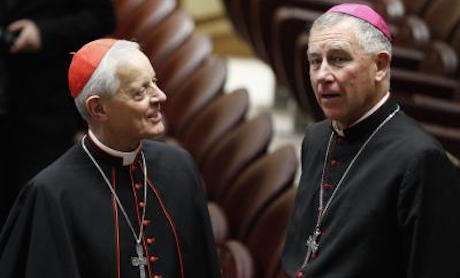Wellington’s Cardinal, John Dew, has been quoted in David Gibson’s U.S.Catholic blog which has also appeared in the Washington Post, Pope Francis has history, but not time, on his side in reform push.
“There would be some people who would want to return” to the old ways, said Dew.
But, “if things were to be turned back, I think there would be a lot of dissatisfaction and unhappiness.”
Dew said that among the disappointed would be many bishops and cardinals, whose job has suddenly become much easier thanks to Francis’ popularity and generally hands-off approach.
The column says that Washington Cardinal Donald Wuerl, a leading American adviser to Francis agrees.
“At the heart of it is expectation, Francis has created a new level of expectation for how the church should go about her work, and I don’t think you can change that.
“And he’s working very hard to put structures in place to support that expectation.
“There are a lot of voices that are very loud (in opposition), but I don’t think they represent the mainstream,” said Wuerl.
“It’s too early to know” if Francis’ reform has passed the point of no return, said a Vatican official who spoke on condition anonymity because of the sensitivity of the issues.
“There’s always a danger when so much is brought in at once. There’s always a chance the pendulum will swing back.”
Cardinal Dew had earlier been noticed by some of the people who appear be among those who want to “return to the old ways”.
In a January piece published in The Catholic Thing Fr Gerald E Murray described Dew’s remarks at a post Synod press conference as “very troubling”.
“Archbishop Dew’s comments reveal lack of sympathy for Church laws that seek to prevent the sin and scandal of sacrilegious reception of the Eucharist by those who lack the proper disposition because they have civilly remarried after divorce,” he said.
“Note the pejorative references to Church discipline for the worthy reception of the Holy Eucharist as ‘judging and condemning, passing out rules and laws’ whereas he seeks a new approach ‘showing concern and compassion,’ giving people ‘hope and support and encouragement,’ using ‘language that helps people and encourages people in their journey to God.’
Source
